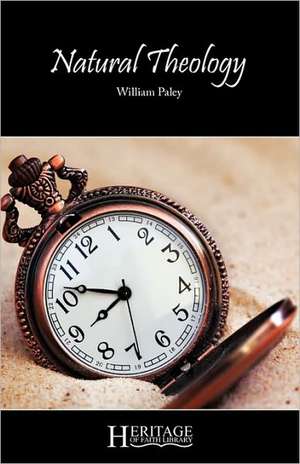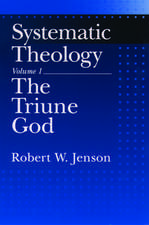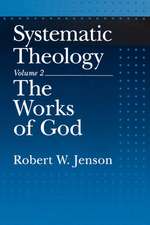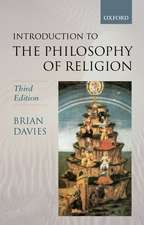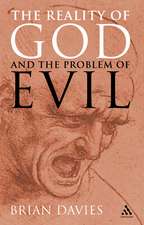Natural Theology
Autor William Paleyen Limba Engleză Paperback – mar 2010
| Toate formatele și edițiile | Preț | Express |
|---|---|---|
| Paperback (6) | 54.22 lei 10-16 zile | +20.85 lei 6-12 zile |
| Oxford University Press – 17 apr 2008 | 54.22 lei 10-16 zile | +20.85 lei 6-12 zile |
| DeWard Publishing – mar 2010 | 106.76 lei 43-57 zile | |
| LIGHTNING SOURCE INC – 26 mai 2018 | 131.75 lei 17-23 zile | |
| – | 150.28 lei 43-57 zile | |
| Benediction Classics – 30 apr 2015 | 200.49 lei 43-57 zile | |
| Cambridge University Press – 19 iul 2009 | 456.07 lei 43-57 zile | |
| Hardback (1) | 186.65 lei 43-57 zile | |
| Suzeteo Enterprises – 31 ian 2012 | 186.65 lei 43-57 zile |
Preț: 106.76 lei
Nou
Puncte Express: 160
Preț estimativ în valută:
20.43€ • 21.20$ • 17.08£
20.43€ • 21.20$ • 17.08£
Carte tipărită la comandă
Livrare economică 17-31 martie
Preluare comenzi: 021 569.72.76
Specificații
ISBN-13: 9780981970394
ISBN-10: 0981970397
Pagini: 338
Dimensiuni: 140 x 216 x 19 mm
Greutate: 0.43 kg
Editura: DeWard Publishing
ISBN-10: 0981970397
Pagini: 338
Dimensiuni: 140 x 216 x 19 mm
Greutate: 0.43 kg
Editura: DeWard Publishing
Descriere
Descriere de la o altă ediție sau format:
'The consciousness of knowing little, need not beget a distrust of that which he does not know.'In Natural Theology William Paley set out to prove the existence of God from the evidence of the beauty and order of the natural world. Famously beginning by comparing the world to a watch, whose design is self-evident, he goes on to provide examples from biology, anatomy, and astronomy in order to demonstrate the intricacy and ingenuity of design that could only come from a wise and benevolent deity. Paley's legalistic approach and skilful use of metaphor and analogy were hugely successful, and equally controversial. Charles Darwin, whose investigations led to very different conclusions in the Origin of Species, was greatly influenced by the book's cumulative structure and accessible style.This edition reprints the original text of 1802, and sets the book in the context of the theological, philosophical, and scientific debates of the nineteenth century. ABOUT THE SERIES: For over 100 years Oxford World's Classics has made available the widest range of literature from around the globe. Each affordable volume reflects Oxford's commitment to scholarship, providing the most accurate text plus a wealth of other valuable features, including expert introductions by leading authorities, helpful notes to clarify the text, up-to-date bibliographies for further study, and much more.
'The consciousness of knowing little, need not beget a distrust of that which he does not know.'In Natural Theology William Paley set out to prove the existence of God from the evidence of the beauty and order of the natural world. Famously beginning by comparing the world to a watch, whose design is self-evident, he goes on to provide examples from biology, anatomy, and astronomy in order to demonstrate the intricacy and ingenuity of design that could only come from a wise and benevolent deity. Paley's legalistic approach and skilful use of metaphor and analogy were hugely successful, and equally controversial. Charles Darwin, whose investigations led to very different conclusions in the Origin of Species, was greatly influenced by the book's cumulative structure and accessible style.This edition reprints the original text of 1802, and sets the book in the context of the theological, philosophical, and scientific debates of the nineteenth century. ABOUT THE SERIES: For over 100 years Oxford World's Classics has made available the widest range of literature from around the globe. Each affordable volume reflects Oxford's commitment to scholarship, providing the most accurate text plus a wealth of other valuable features, including expert introductions by leading authorities, helpful notes to clarify the text, up-to-date bibliographies for further study, and much more.
Recenzii
This is an astonishing book, made all the more accessible by some excellent modern footnotes
Notă biografică
Matthew D. Eddy is a graduate of Princeton Theological Seminary and the University of Durham and has recently held fellowships at the Dibner Institute (MIT), Harvard University, the Max Planck Institute for the History of Science (Berlin) and the University of Notre Dame's Erasmus Institute. He has just finished editing (with David M. Knight) Science and Beliefs: From Natural Philosophy to Natural Science, 1700-1900 (Ashgate,2005).David Knight has edited the British Journal for the History of Science and served as President of the British Society for the History of Science. In 2003 he received the American Chemical Society's Edelstein Award for History of Chemistry.
Cuprins
1. State of the argument; 2. State of the argument continued; 3. Application of the argument; 4. Of the succession of plants and animals; 5. Application of the argument continued; 6. The argument cumulative; 7. Of the mechanical and immechanical functions of animals and vegetables; 8. Of mechanical arrangement in the human frame—of the bones; 9. Of the muscles; 10. Of the vessels of animal bodies; 11. Of the animal structure regarded as a mass; 12. Comparative anatomy; 13. Peculiar organisations; 14. Prospective contrivances; 15. Relations; 16. Compensations; 17. The relation of animated bodies to inanimate nature; 18. Instincts; 19. Of insects; 20. Of plants; 21. Of the elements; 22. Astronomy; 23. Personality of the Deity; 24. Of the natural attributes of the Deity; 25. Of the unity of the Deity; 26. The goodness of the Deity; 27. Conclusions.
